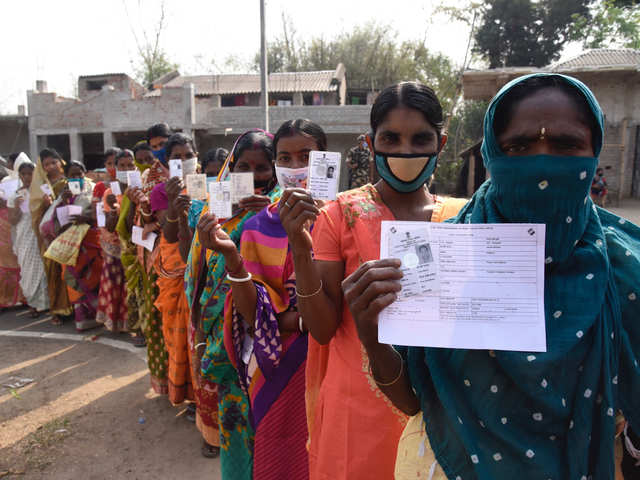The election in West Bengal used to be an ‘isolated’ event for the ‘national media’. Since the Communist parties came to power in the 1970s, the elections in West Bengal were more about ‘political violence’ than high-octane campaigns on politics and policies that we see today.
TMC, which toppled 34 years rule of the Communist parties, positioned itself “left of left” and inherited every tactic of the Communist parties – from political violence to booth capturing, party worker’s control over state machinery (including police) to extortion of money for party activities.
However, the state of West Bengal witnessed a completely different election after almost four and a half decades, thanks to Prime Minister Modi and Home Minister Amit Shah. The West Bengal assembly election 2021 is the most fiercely fought election ever in the history of the state, and arguably in the history of the state elections in the country too. Even in the state of Uttar Pradesh – from where the road to power in parliament passes – the assembly elections have never been fought with this much rigour and dedication as the West Bengal assembly election.

BJP, under the leadership of J P Nadda – who was elected as President of the party in January last year – also threw it all for the 2021 assembly election. The West Bengal assembly election 2021 is so crucial for the party that Amit Shah, the master strategist, was given the command for the election despite the fact that he holds the position of the Home Minister.
Amit Shah prepared a 23 point to-do list on every booth level unit to ensure BJP’s victory in the upcoming assembly election. The to-do list includes tasks such as recruitment of people from SC, ST and OBC community from every booth and form committees in every area depending on the social configuration.
BJP’s entire election machinery has been activated for the state of West Bengal as the party is optimistic about gaining power in the state for the first time in the 2021 assembly election. Many leaders and party functionaries from the party’s central committee like Kailash Vijayvargiya, Bhupendra Yadav are on deputation in West Bengal for months.
The party, contrary to its character in other states where it is primarily supported by the upper caste, upper class, urban population, combined Hindutva with Mandal politics in the state.
Read More: Urban areas in West Bengal have been a stronghold of TMC, but this time BJP is likely to sweep them
The lower castes, who have been long deprived of power in the state by leftist elites, are the target voter base of the saffron party. In Bengal, BJP’s primary voter base consists of OBCs, SCs and STs. Riding on popularity in these communities, the party managed to win 18 seats out of 42 in the 2019 general elections in West Bengal. The constituencies that the party majorly won in 2019 were rural– primarily in the Western and Northern regions of the state.
Prime Minister Modi, Home Minister Amit Shah and BJP should be thanked for completely changing the nature of the politics in West Bengal – from urban-centered to rural centered, political violence and booth capturing centered to issues and policy centered. And, the party is expected to bear the fruits of the deeds on May 2.



























